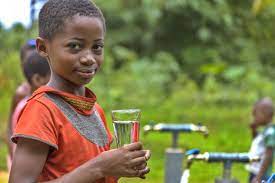
- There are an estimated 2,313,566 water points in Nigeria, with about 60 % located in rural areas and 40 % in urban areas 30 % of all households use motorized boreholes.
- 11 % of all motorized boreholes are solar-powered
- Only12 % of water points in Nigeria are handpump boreholes, while a majority (42 %) are hand dug wells
- Up to 84 % of all water supply facilities were functional at the time of the survey.
- 48 % of non-functional facilities stopped working for more than a year preceding the survey
- Functionality of privately-owned (69 %) water points is higher than functionality of publicly-owned systems at 53 %
- Only 15 % of water systems have provisions for people living with disabilities
- About two-thirds of the water points (75 %) are provided by individuals (i.e. households, private businesses, communities or philanthropists).
- While on 4 % of total water points are provided by donors 57 % of water facilities are publicly-used 30 % of all publicly-used water systems have some form of facility management committee in place, while 51% have water point facility caretakers in place.
- Water tariff systems are in place in only 8 % of the facilities, with 70 % of the tariff system being “payment per container”
- The average per capita share for water supply in Nigeria is 10 liters per person per day
- Only 2 % of water facilities are available for at least 6 hours daily for the past 2 weeks preceding the survey
Source: Water Sanitation and Hygiene National Outcome Routine Mapping (WASHNORM) survey, 2021
The survey is a collaboration between the Federal Ministry of Water Resource and the National Bureau of Statistics with support from UNICEF, the World Bank, WHO and other development partners.
Leave a Reply